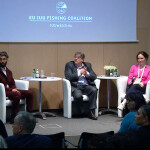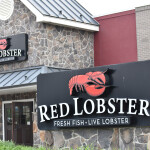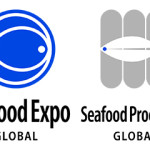The world of seafood is a complicated, controversial and fascinating place.
That was my immediate takeaway from my first week at work as the new editor at SeafoodSource.com.
Further revelations came in waves in my second week, as I attended the SeaWeb Seafood Summit, which took place 1 to 3 February, 2016, in St. Julian’s, Malta. The summit annually brings together representatives from industry, NGOs (including many conservation groups), academia and the media to further efforts to “foster dialogue and partnerships that lead to a seafood marketplace that is environmentally, socially and economically sustainable.”
On the first day of the conference, I learned of the difficulties facing seafood marketers as they try to increase their sales to restaurants, food service and hospitality companies. Keynote speaker Arlin Wasserman the founder of Changing Tastes, a food service consultancy, made a powerful argument in favor of a big-picture promotional push for more seafood consumption.
“Seafood marketers need to do a better job of comparing fish and seafood to other food categories, such as beef or chicken, because the health comparisons are so favorable,” Wasserman said. “If we can reposition seafood as better than other foods for health, environment and other reasons, can win market share from those transitioning away from meat and make ours the ideal protein for the dining and shopping public.”
From Steve Gaines, dean of the Donald Bren School of Environmental Science and Management at University of California, Santa Barbara, I learned of the vital role that aquaculture will play in feeding the rapidly growing populations of Asia and Africa.
“With more people in Africa and greater wealth in Asia, I predict almost another doubling of demand for animal protein in the next 30 years,” Gaines said. “Populations there are already predisposed to seafood, as it makes up 30 percent of their diet, giving it a leg up on other proteins.”
By day two of SeaWeb, it was clear to me that seafood won’t become a bigger part of the world’s diet without improving and maintaining the economic, environmental and social sustainability of the world’s fisheries and aquaculture facilities. I was impressed by the progress made recently on certification, traceability, social responsibility, bycatch management and combating illegal, unreported and unregulated fishing, and daunted by the challenges that remain.
I spent many hours at the conference learning more about labor practices in the Thai seafood industry and was inspired to hear from Thai authorities such as Minister of Labor General Sirichai Distakul, who also serves as Secretary of the Committee on Policy Implementation to Combat Foreign Workers and Human Trafficking Problems. Distakul admitted to his country’s problems with human rights abuses in its fisheries workforce and seemed sincere in asking for “constructive ideas for the fight ahead against IUU fishing and human trafficking.”
I was equally impressed by Ally Dingwall, aquaculture and fisheries manager at Sainsbury’s Supermarkets (and 2016 Seafood Champion Award for Leadership winner), and Steve Trent, founding director of the Environmental Justice Foundation and WildAid, both of whom have been heavily involved in working with Thailand on improving the human rights situation its fisheries. Dingwall and Trent encouraged companies that source from Thailand not to cut and run, but rather to engage in efforts to eliminate slavery and other human rights abuses recently found to be widespread in the Thai seafood industry.
Thanks to SeaWeb, I’m now much more familiar with many of the problems confronting the seafood industry during this most interesting and turbulent of times. Also thanks to SeaWeb, I know none of them will be easy to solve. But I’m encouraged by the intelligent, talented and dedicated people working hard to find solutions, such as Seafish’s new social responsibility tool, which identifies the likelihood and severity of human and labor rights abuses by type of seafood and by country.
I’m relieved to know there is a committed group of well-meaning people out there willing to overcome traditional obstacles to progress and motivated to work to balance the interests of all to try to find the best path forward.
It’s exciting to think that I’ll be among the first to know when they come up with a big idea. I promise to give my all to report on that work as fairly, quickly and thoroughly as possible.






